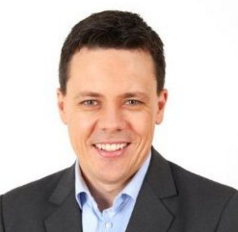What Steve Wozniak taught me about the power of brand storytelling
Every brand has a story, but how do you make yours compelling, memorable and profitable? Mark Jones says Apple’s engineer has the answer.
Look out, I’m about to name drop, but it’s a great story.
Years ago I sat down with Steve Wozniak to interview him on camera for Financial Review TV. It was in the days before the famous Apple co-founder made Australia his home, and I was one of the few granted an audience during a short trip.
 I’m fond of calling these moments the ‘he speaks!’ interview. PR people call you up, offering an interview with someone famous, and if the person is famous enough, the easy answer is ‘yes’. Who cares what they say? You’ll get an audience because he speaks!
I’m fond of calling these moments the ‘he speaks!’ interview. PR people call you up, offering an interview with someone famous, and if the person is famous enough, the easy answer is ‘yes’. Who cares what they say? You’ll get an audience because he speaks!
But there is a catch. There’s a good chance visiting US execs will be scripted and boring. So the onus on a journalist in a ‘he speaks!’ interview is to do your homework – ask him or her something unexpected so you’ve got a fresh angle.


Great story; and so I’m now on to the poddy…
PA
Cheers to that! Enjoy the show Paul.
A quick glance at Tolstoy, Charlotte Bronte, even dear old Agatha Christie, will prove that great story telling is not new, and neither is there any proof that there is a new and better way of achieving it.
I remember the story of Levi Strauss, who told the clothiers of the wild west “I can make you jeans” and on the same subject, Amco, who told us that “Every Amco tells a story.” Moonshine and Bootlegging stories from James B Beam, Sir John Mills recounting the story of Lord such and such, who found himself in reduced circumstances yet still liked a biscuit, and Schweppes, who used to,and obviously still do, know where the Sparkling Lemon Trees grow.
The concept of using a story to build a brand is a powerful one. The greatest ideas always derive from a place of passion, and storytelling is one of the most effective ways to share that passion with your audience. Content marketing is leaning more and more on storytelling to captivate consumers and win over their attention.